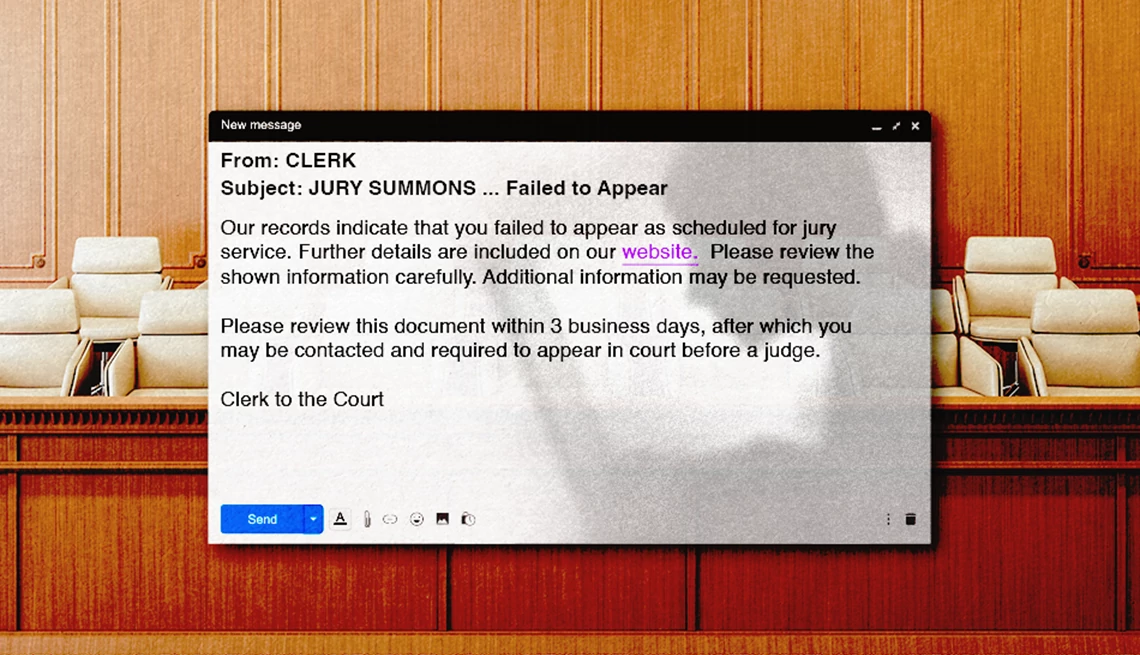AARP Hearing Center


A woman in Sarasota received an upsetting call last year: it was someone claiming to be a sheriff from the Sarasota County Sheriff’s Office — whose number showed up on her caller ID, so it seemed legitimate — and notified her that a warrant had been issued for her arrest because she’d missed jury duty. She was told she could pay a penalty through a “Bonding Transition Center,” which was actually a Bitcoin ATM, to avoid arrest. It was a scam, she’d learn, after sending $12,825 to the criminals, one of whom had contacted her from a Georgia state prison, according to Robert Handberg, U.S. Attorney for the 35-county Middle District of Florida, who notes that this is hardly an isolated incident.
“We're seeing a real uptick in the scam,” he says, adding that criminals are using the names of real sheriffs and federal judges and spoofing real numbers to perpetrate their schemes. “I really feel like this is going to be the tip of the iceberg.”
The facts about jury duty scams
Getting called for jury service is a routine part of life for most Americans. But if that summons to civic duty comes in the form of a phone call or email, be suspicious: It’s probably a jury duty scam.
In this long-running form of government imposter scam, criminals posing as court or law enforcement officials, such as a U.S. marshal or sheriff’s officer, claim you’ve failed to appear for jury duty and face imminent arrest. The only way out is to pay an immediate fine via credit card, gift card or money transfer.
Others will ask for personal information such as your Social Security number and date of birth, supposedly so they can check court records but really so they can steal your identity.
Some aim for maximum menace, trying to browbeat you into complying. Others play good cop, sympathetically promising to help you clear your name and recoup the payment down the road.


































































More From AARP
Scams and Fraud Protection Tips
If You Donate to Relief Efforts for Ukrainians, Give Wisely